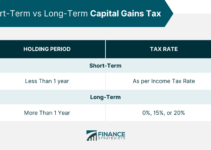Leadership Reimagined: Purpose, Resilience, and the Next Generation takes center stage as we navigate a world increasingly defined by rapid change and interconnectedness. Traditional leadership models, built on command-and-control structures, are giving way to a new paradigm, one where purpose, resilience, and the values of the next generation drive success.
This shift demands leaders who are not only adept at navigating complex challenges but also deeply invested in fostering a sense of shared purpose and creating a sustainable future.
This exploration delves into the evolution of leadership, highlighting the crucial role of authenticity, empathy, and emotional intelligence in building trust and inspiring action. We’ll examine the power of purpose in aligning organizations and teams towards a shared vision, and how resilience becomes a vital tool for navigating uncertainty and fostering adaptability.
Ultimately, we’ll consider the defining characteristics of the next generation of leaders, those who are shaping the future through their innovative approaches, embrace of diversity, and understanding of the global landscape.
Redefining Leadership

The concept of leadership has undergone a significant evolution, moving away from the traditional command-and-control approach towards a more collaborative and purpose-driven model. This shift is driven by the changing dynamics of the modern workplace, characterized by increased complexity, rapid technological advancements, and a growing emphasis on employee well-being.
Leaders Who Embody Reimagined Leadership
This reimagined leadership style is characterized by a focus on shared purpose, empowerment, and a commitment to fostering a culture of trust and transparency. Here are some examples of leaders who embody this approach:
- Indra Nooyi, former CEO of PepsiCo, is widely recognized for her focus on building a diverse and inclusive culture, empowering her team to take ownership of their work, and prioritizing long-term sustainability.
- Satya Nadella, CEO of Microsoft, has transformed the company by embracing a growth mindset, promoting collaboration and innovation, and emphasizing the importance of empathy and emotional intelligence in leadership.
- Sheryl Sandberg, COO of Meta, is known for her advocacy for women in leadership and her focus on building a culture that supports and empowers all employees. She has also been a vocal advocate for work-life balance and the importance of flexibility in the modern workplace.
The culinary world is calling, and a Culinary Arts Degree can be your ticket to a fulfilling career. Culinary Arts Degree 2024: A Guide to Success provides insights into the exciting opportunities available in the culinary industry, from mastering the art of cooking to managing your own restaurant.
With a passion for food and the right education, you can turn your love for cooking into a successful career.
The Importance of Authenticity, Empathy, and Emotional Intelligence
Authenticity, empathy, and emotional intelligence are crucial for leaders in today’s world. These qualities enable leaders to build strong relationships with their team members, foster a culture of trust and respect, and inspire their teams to achieve shared goals.
The world of business is constantly evolving, and the DealBook Summit 2024 promises to be a hotbed of insightful discussions on the latest trends and challenges facing industry leaders. From navigating the complexities of global markets to fostering a more sustainable and purpose-driven business model, the summit offers a platform for exchanging ideas and shaping the future of business.
- Authenticityinvolves being true to oneself and one’s values. It allows leaders to connect with their team members on a deeper level, building trust and fostering a sense of shared purpose.
- Empathyis the ability to understand and share the feelings of others. Empathetic leaders are able to create a more inclusive and supportive work environment, where team members feel valued and heard.
- Emotional intelligencerefers to the ability to understand and manage one’s own emotions and the emotions of others. Leaders with high emotional intelligence are better equipped to navigate challenging situations, resolve conflicts effectively, and inspire their teams to perform at their best.
Purpose as the Guiding Star
In the landscape of evolving leadership, purpose has emerged as a powerful guiding star, illuminating the path towards sustainable success. A clear and compelling purpose, one that resonates deeply with both employees and stakeholders, acts as a unifying force, inspiring action and fostering resilience in the face of challenges.
The Significance of Purpose
A well-defined purpose serves as the North Star, guiding every decision, action, and strategy. It provides a sense of meaning and direction, fostering a shared understanding of the organization’s raison d’être. By aligning actions with a clear purpose, organizations can build trust, attract and retain talent, and create a culture of accountability.
This, in turn, drives engagement, innovation, and ultimately, organizational success.
Purpose in Action: Inspiring Examples
Numerous organizations have successfully demonstrated the power of purpose-driven leadership.
- Patagonia, a renowned outdoor apparel company, has built its brand around a commitment to environmental sustainability. Its purpose, “Build the best product, cause no unnecessary harm, use business to inspire and implement solutions to the environmental crisis,” has guided its operations for decades.
Patagonia’s commitment to sustainability has resonated with consumers, leading to strong brand loyalty and financial success.
- The Body Shop, a global cosmetics retailer, has long championed ethical sourcing and social responsibility. Its purpose, “To dedicate our business to the pursuit of social and environmental change,” has been central to its brand identity. The Body Shop’s commitment to fair trade and environmental protection has attracted a loyal customer base and earned it widespread recognition for its ethical practices.
Your camera is an investment, and protecting it is crucial. Camera Insurance 2024: Protecting Your Precious Gear offers a comprehensive guide to camera insurance, helping you understand the coverage options available and ensure your valuable equipment is protected against accidents, theft, and other unforeseen events.
With the right insurance, you can capture life’s moments with peace of mind.
Communicating and Inspiring Purpose
Leaders play a crucial role in effectively communicating and inspiring a shared purpose within their teams.
- Authenticity:Leaders must demonstrate genuine belief in the organization’s purpose, ensuring that their actions align with their words. Authenticity fosters trust and inspires employees to embrace the purpose as their own.
- Storytelling:Powerful stories can bring the purpose to life, making it relatable and memorable. Leaders should share inspiring narratives that demonstrate the impact of the organization’s work on individuals, communities, and the world.
- Empowerment:Leaders should empower employees to contribute to the purpose by providing them with the autonomy and resources to make meaningful contributions. This fosters a sense of ownership and commitment, driving innovation and engagement.
The Next Generation of Leaders
The traditional leadership paradigm is being challenged as a new generation takes the reins. This generation, often referred to as Millennials and Gen Z, brings a fresh perspective and a unique set of skills that are reshaping the leadership landscape.
A fresh start can be just a legal process away. If you’re looking to move past past mistakes and create a brighter future, an Expungement Lawyer can help you navigate the complexities of expungement laws and guide you towards a clean slate.
With their expertise, you can reclaim your opportunity and pursue your goals with confidence.
Understanding the characteristics and skills that define this next generation of leaders is crucial for organizations and individuals alike to adapt and thrive in the evolving world.
Navigating the mortgage market can be daunting, especially with fluctuating rates. Secu Mortgage Rates 2024: A Comprehensive Guide provides a comprehensive guide to understanding Secu mortgage rates, empowering you to make informed decisions and secure the best mortgage for your financial needs.
Key Characteristics and Skills of the Next Generation of Leaders, Leadership Reimagined: Purpose, Resilience, and the Next Generation
The next generation of leaders is characterized by their values, skills, and perspectives, which are shaped by the world they grew up in. They are digital natives, accustomed to instant information access and collaborative environments. This has fostered a sense of adaptability, agility, and a collaborative approach to problem-solving.
The Dealbook Summit 2024 is a gathering of influential minds from various sectors, ready to discuss the future of business and its impact on the world. From innovative technologies to evolving societal expectations, the summit promises to spark conversations that shape the future of industry.
- Tech-Savvy and Data-Driven:This generation has grown up with technology and understands its power to transform organizations and societies. They are adept at using data analytics, artificial intelligence, and other technological tools to make informed decisions and drive innovation.
- Purpose-Driven and Values-Oriented:The next generation of leaders prioritizes purpose and values. They are more likely to work for organizations that align with their personal beliefs and contribute to a greater good. This emphasis on purpose is reflected in their desire for work-life balance, social impact, and ethical leadership.
- Collaborative and Inclusive:This generation is accustomed to working in diverse and global teams. They value collaboration, inclusivity, and a sense of shared responsibility. This translates into a leadership style that is more participatory, empowering, and focused on building strong relationships.
- Resilient and Adaptable:The next generation has grown up in a world marked by rapid change and uncertainty. This has instilled in them a high degree of resilience, adaptability, and a willingness to embrace change. They are comfortable with ambiguity and are able to navigate complex situations with agility.
- Lifelong Learners:The next generation of leaders understands that learning is a continuous process. They are eager to acquire new skills and knowledge, embracing a growth mindset and seeking opportunities for personal and professional development.
Technology’s Impact on Leadership
Technology is rapidly changing the way we work, communicate, and lead. The next generation of leaders is at the forefront of this transformation, leveraging technology to drive innovation, enhance efficiency, and build stronger connections.
- Remote Work and Virtual Collaboration:The rise of remote work and virtual collaboration tools has enabled leaders to manage teams across geographical boundaries. This has created new challenges and opportunities for leadership, requiring leaders to foster trust, build relationships, and ensure effective communication in virtual environments.
World Mental Health Day 2024 is a reminder of the critical importance of mental well-being, and technology plays a vital role in supporting mental health initiatives. Technologys Role in Mental Health on World Mental Health Day 2024 explores the innovative ways technology can be used to provide access to mental health resources, facilitate therapy sessions, and promote self-care practices.
- Artificial Intelligence and Automation:Artificial intelligence (AI) and automation are transforming industries and impacting the way leaders make decisions. Leaders need to understand how AI can augment human capabilities, automate tasks, and improve decision-making.
- Data-Driven Decision Making:Technology has made vast amounts of data readily available. Leaders need to be able to analyze data, extract insights, and use them to inform strategic decisions. This requires data literacy and the ability to interpret complex data sets.
Diversity and Inclusion in Leadership
Diversity and inclusion are essential for organizational success and innovation. The next generation of leaders recognizes the importance of creating inclusive workplaces that value diverse perspectives and experiences.
- Representation and Equity:The next generation of leaders is actively advocating for greater representation of women, people of color, and other underrepresented groups in leadership positions. This requires organizations to implement strategies to attract, retain, and promote diverse talent.
- Cultural Sensitivity and Global Mindset:The next generation of leaders is increasingly operating in a globalized world. They understand the importance of cultural sensitivity, global awareness, and the ability to work effectively with people from different backgrounds.
- Building Inclusive Workplaces:The next generation of leaders is committed to building inclusive workplaces where everyone feels valued, respected, and empowered. This requires creating a culture of empathy, understanding, and respect for diversity.
Global Interconnectedness and Leadership
The world is increasingly interconnected, with global challenges and opportunities demanding a new approach to leadership. The next generation of leaders is prepared to navigate this interconnectedness, fostering collaboration and understanding across borders.
- Global Collaboration and Partnerships:Leaders need to be able to build relationships and collaborate with individuals and organizations from different cultures and backgrounds. This requires a global mindset and the ability to navigate cultural differences effectively.
- Addressing Global Challenges:The next generation of leaders faces complex global challenges, such as climate change, inequality, and pandemics. They need to be able to work together across borders to find solutions to these shared problems.
- Building a Sustainable Future:The next generation of leaders is committed to building a sustainable future for generations to come. They understand the importance of environmental stewardship, social responsibility, and ethical decision-making.
Wrap-Up
As we conclude our journey into the reimagined landscape of leadership, it becomes clear that success hinges on embracing purpose, cultivating resilience, and empowering the next generation. Leaders who embody these qualities will not only navigate the complexities of the present but also shape a future where collaboration, innovation, and a shared sense of responsibility drive progress.
The path forward demands a redefinition of leadership, one that embraces the evolving needs of our interconnected world and empowers individuals to reach their full potential. By embracing this reimagined approach, we can unlock a new era of leadership, one that is both transformative and sustainable.
FAQ Overview: Leadership Reimagined: Purpose, Resilience, And The Next Generation
What are some practical examples of leaders who embody this reimagined leadership style?
Examples include leaders who prioritize employee well-being, foster open communication, and actively seek diverse perspectives. Think of leaders who champion social responsibility, are transparent in their decision-making, and empower their teams to contribute to a larger purpose.
How can leaders effectively communicate and inspire their teams around a shared purpose?
Effective communication involves clearly articulating the purpose, connecting it to individual goals and values, and creating opportunities for team members to contribute to its realization. Leaders can use storytelling, shared experiences, and open dialogue to foster a sense of shared ownership and commitment.
What are some specific skills that define the next generation of leaders?
The next generation of leaders are often characterized by their tech-savviness, adaptability, cross-cultural understanding, and focus on collaboration. They are comfortable with ambiguity, prioritize ethical decision-making, and are driven by a desire to make a positive impact.

















